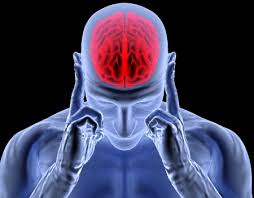Do You Have Knee Pain or Brain Pain?
Aug 14, 2015
“The fear of pain is worse than pain itself” Arntz and Peters, 1995.
Back in the day when I was still active duty in the Army, I had to attend what was called a Joint Operational Deployment Course. It’s a week-long course where myself and other active duty medical providers learned how to take care of trauma related issues predominantly. It was great training and I learned a ton. I also learned I’m terrible at giving an IV.
One of my colleagues was unlucky enough to have me as a partner as we learned to hook up an IV bag. To make matters worse he was deathly afraid of needles and blood. In fact I’ve been around him when he had to sit down for a few minutes after getting a routine shot otherwise he would have passed out.
The process for hooking up an IV bag is pretty straight forward. Step 1: put on tourniquet. Step 2: insert needle. Step 3: attach IV clamp/bag to needle port. Step 4: take tourniquet off and open IV. Much to my friend’s dismay, I mixed up the steps and accidentally took the tourniquet off before attaching the IV bag.
My partner was intentionally looking away the entire time because if he saw the needle he would pass out. As the blood started running out of his arm through the IV port I had just placed in his vein I said the worst thing I could have at the time, “Oh Shit!!”. He immediately looked at me and then at his arm which was now next to a rather large pool of blood on the table. He immediately passed out as I fumbled to attach the IV bag and stop the bleeding. He’s still very much alive and still very much afraid of needles. I reminisced with him about this event a few weeks ago when he and his family visited my family in Atlanta. Yes, I’m not the best person to call if you need and IV put in but the real question is why is this person so afraid of needles/blood and I can watch blood be drawn or even stick needles in myself without a similar response?
The answer is directly related to the opening quote: The fear of pain is worse than pain itself. Maybe this person had a memorable traumatic experience with a shot when he was a kid. Maybe his mom or dad were really afraid of giving blood/needles. Maybe he had a sibling that told him how terrible it would be to get a shot just to mess with him. Either way it eventually leads to a pain experience.
After a pain experience, we start catastrophizing the event, in this case shots or needles. That leads to more pain related fear and eventually avoidance of the painful event again. All of this leads to more and more perception of pain with the activity.
So why am I putting this on a blog that typically talks about performance improvement and injury treatment? Because, for people that have had pain for more than a few months they have to stay away from falling into this vicious cycle.
I had a patient recently that came in to see me for pain in the front of his knee. He had no explained onset except that he had tried to take up running and had to stop because his knee hurt whenever he would run. It also hurt to go up/down stairs if he led with the injured leg. He resorted to only going up stairs with his non-injured side one step at a time. This is an incredibly slow way of going up/down stairs and I’m sure he aggravated countless people that were behind him in stairwells.
What’s the first thing we did? Talked about how his leg was healthy and had him start going up stairs with what he perceived to be his injured leg. We also had him start box squatting the first week. When I told him we were going to squat his face looked like I had just told him we were going to fight a grizzly bear. We had to expose him to those activities he was avoiding and afraid of. Sure he gained some strength back and that is obviously a contributing factor to him getting better. However, the biggest factor was the realization that his leg wasn’t broken, it was functional and he needed to start using it correctly again.
With chronic injuries we can become very sensitized and aware of any little thing that happens in a painful area. Sometimes the best treatments are the ones that prove to our own mind that we are still functional!
-Dr. Danny, PT, DPT
Let us help you figure out to live your best active life today!
Remember, Movement is Medicine!

